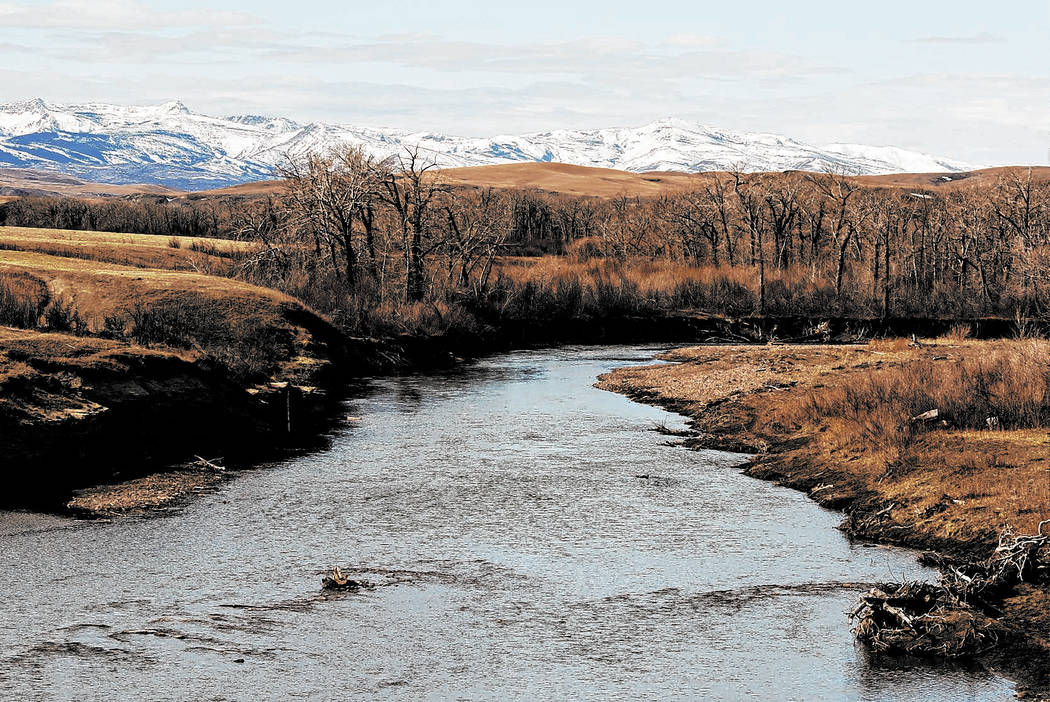COMMENTARY: Building trust with Westerners
The American West may be “where seldom is heard a discouraging word,” but law enforcement officers know things can change in a heartbeat.
On a sunny day in late May 2018, Bureau of Land Management Rangers Bryce Stewart and Karl Hilderbrand, operating out of Grand Junction, Colorado, were driving back from the firing range when they noticed a van parked off a dirt road. Because it had been in the area for days, they decided to do a welfare check.
As Hilderbrand neared the van, he spotted a holstered .357 magnum revolver on the dashboard. Pistols, openly carried or concealed — and shotguns and rifles of all sorts — are ubiquitous in the West. And so Hildebrand calmly asked the driver to secure the firearm so the men could have a discussion without its threatening presence. The driver then coolly reached for the firearm before suddenly unholstering it and turning it on Stewart, who stood in front of the van.
Hilderbrand lunged for the weapon, but the driver got off a shot. Hilderbrand then drew his weapon and returned fired. Meanwhile, Stewart, with a round lodged in his ballistic vest, drew his pistol and likewise fired, ending the standoff with the driver slumped, mortally wounded, behind the wheel.
To commend Rangers Hildebrand and Stewart for their bravery in subduing the armed suspect, in a ceremony in Washington, Secretary of the Interior David Bernhardt recently bestowed upon them the Department’s Valor Award — given to Interior employees who have demonstrated exceptional courage and endured a great degree of personal risk in the performance of their duties.
Every day, Rangers Hilderbrand and Stewart — and more than 200 of their colleagues — patrol the 245 million acres of public lands managed by the BLM, keeping 70 million annual visitors safe, while protecting America’s scenic, cultural and historical treasures. They work closely with local, state and federal partners — particularly, Western county sheriffs and their deputies — to perform rescues, conduct welfare checks and confront criminal activities, including drug and human smuggling, illegal dumping, drug cultivation and vandalism. BLM Rangers also answer the call when their services are needed elsewhere, as with disaster relief efforts for Hurricane Dorian in Florida.
Today’s BLM Rangers are highly regarded, well-respected and wholeheartedly embraced by their Western colleagues in the law enforcement community. But that was not always the case.
Until recently, rural Westerners had come to distrust not the individual rank-and-file Rangers — many of whom were friends and neighbors in their small communities — but rather the Rangers’ leaders in Washington and the policies that made them the pointy end of a misaimed federal spear. To make matters worse, some of those leaders seemed to think they were above the law.
Not surprisingly, it was the Ranger community that helped blow the whistle and aided Trump administration officials in addressing troubling allegations of employee misconduct, destruction and mishandling of evidence and misappropriation of government funds.
In 2017, the department tasked its inspector general, solicitor and bureau leadership to clean house; end the mischief, malfeasance and criminal wrongdoing; and restore the professionalism that had once been the Rangers’ hallmark. This effort continues under Secretary Bernhardt, who has reinforced professional accountability and demanded adherence to the highest ethical standards. Today, the bureau is committed to exceeding the expectations of the American people that federal law enforcement professionals are paragons of truly dutiful and dedicated public service.
To this end, the bureau is reaching out to local sheriffs to ensure that Rangers recognize that, although local law enforcement bears primary responsibility for enforcing state and federal law, Rangers are there to assist — lending their expertise to better local communities. Rangers, therefore, partner with local law enforcement, while recognizing that counties are a governmental-arm of sovereign states. Maintaining that deference is essential to making BLM a truly productive and valued partner to Western communities.
Our Rangers, however, cannot always go it alone. They work with other federal agencies and bureaus, including the U.S. Forest Service, the Bureau of Reclamation, Bureau of Indian Affairs and the National Park Service. And, given Rangers’ often solitary presence on the immense panoramas they patrol, they also team up with the Department of Homeland Security, U.S. Customs and Border Protection and the Drug Enforcement Administration. These partnerships are an integral part of Rangers’ stewardship of our vast lands and natural resources.
In truth, Rangers Stewart and Hilderbrand are just two of the 212 BLM Rangers and 76 special agents who patrol BLM-managed lands to make them safer and more secure for the millions of Americans who visit those landscapes each year. They all deserve our admiration, respect and sincere appreciation for their sacrifice and service to the department, to the American people and to the cause of conservation.
— William Perry Pendley is BLM deputy director for policy and programs.

















